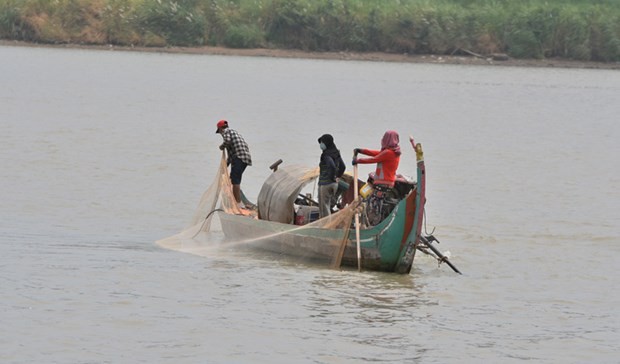
In a recent interview with a local media outlet, its director Hong Hy said the water levels in many important rivers in the Cambodia, such as Tonle Sap and the Mekong, continue to fall during the prolonged dry season, which is affecting the fish breeding cycle and migration, the Khmer Times newspaper reported.
According to Hy, the end of June is normally the breeding season for many types of fishes, especially the Pangasius fish, but so far this year, there is no sign of migration and reproduction.
The Tonle Sap is the largest freshwater lake in the region and usually provides Cambodia with 500,000 tonnes of fish or about 70 percent of the country’s total annual protein intake. However, last year, natural fish catches amounted to only 14,023 tonnes.
If the water level continues to fall, it will affect fish reproduction. It can also lead to insufficient fish supply in the market, Hy said.
On illegal fishing, he said people still continue to use banned fishing nets and fish stunners despite law enforcement, adding that these activities not only harm fish fry and endangered species but also fishermen’s livelihoods.
A report by the Agriculture Ministry revealed that last year, Fisheries Administration officials in cooperation with relevant authorities cracked down on 3,101 fisheries crimes and destroyed fishing nets spanning a total of 1,149.20 kilometres, 575,731 poles and 402 electrofishing equipment.
Hy also announced the closed fishing season will begin on July 1 in the freshwater areas. The closure is aimed at conserving and protecting fishery resources during the breeding session.
























